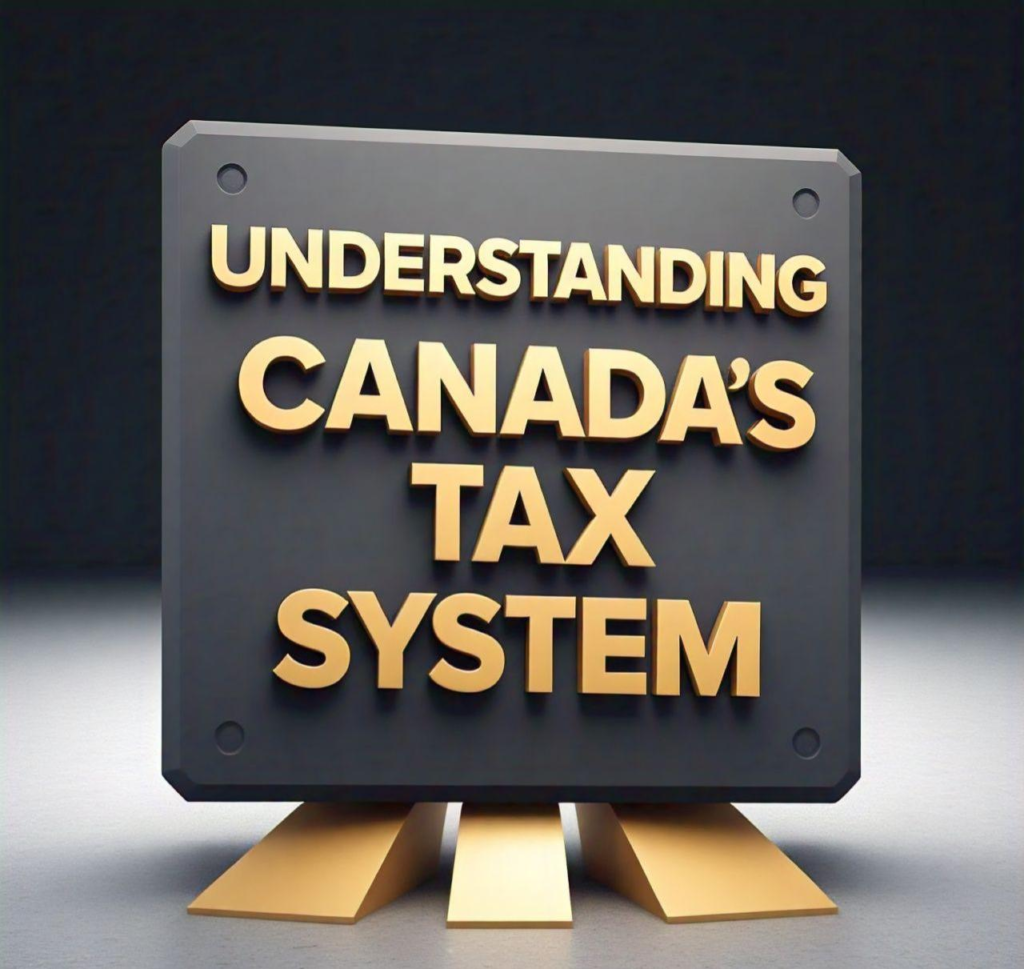UNLOCK THE POWER OF MAXIMIZING AND OPTIMIZING WEALTH: 7 ADVANCED TAX STRATEGIES FOR HIGH-INCOME EARNERS IN CANADA
As a high-income earner in Canada, you understand the importance of optimizing your financial strategies to minimize taxes and maximize wealth. With the ever-changing tax landscape, staying informed and adapting your approach is crucial to ensure you’re taking advantage of all available tax savings opportunities.
In this comprehensive guide, we’ll delve into advanced tax strategies tailored specifically for high-income earners in Canada. We’ll explore the most effective methods for reducing your tax liability, increasing your wealth, and achieving long-term financial security.
UNDERSTANDING CANADA’S TAX SYSTEM

Before diving into advanced tax strategies, it’s essential to grasp the fundamentals of Canada’s tax system. Canada has a progressive tax system, meaning that the more you earn, the higher your tax rate will be. The country also has a self-assessment system, where taxpayers are responsible for reporting their income and claiming deductions and credits.
Key Components of Canada’s Tax System
1. Taxable Income: Income earned from various sources, including employment, business, investments, and property.
2. Tax Brackets: Canada has a progressive tax system, with tax rates increasing as income rises. There are five federal tax brackets: 15%, 20.5%, 26%, 29%, and 33%.
3. Deductions and Credits: Expenses and investments that can reduce taxable income or provide a direct reduction in taxes owed.
4. Tax Credits: Non-refundable and refundable credits that can reduce taxes owed.
Types of Taxes in Canada
1. Income Tax: Tax on an individual’s or business’s taxable income.
2. Goods and Services Tax (GST): A federal tax on goods and services.
3. Provincial Sales Tax (PST): A provincial tax on goods and services.
4. Property Tax: A municipal tax on real property.
ADVANCED TAX STRATEGIES FOR HIGH-INCOME EARNERS

1. Income Splitting: Income splitting involves transferring income from a higher-income earner to a lower-income earner, reducing the overall tax liability. This can be achieved through various means, such as pension income splitting, spousal loans, and trusts.
2. Tax-Loss Harvesting: Tax-loss harvesting involves selling securities that have declined in value to offset gains from other investments. This strategy can help reduce capital gains tax and minimize losses.
3. Charitable Donations: Charitable donations can provide significant tax benefits, including credits and deductions. High-income earners can also consider donating securities or other assets to charity, which can help reduce capital gains tax.
4. Registered Retirement Savings Plans (RRSPs): RRSPs offer tax-deferred growth and can help reduce taxable income. High-income earners can contribute to an RRSP to reduce their tax liability and save for retirement.
5. Tax-Free Savings Accounts (TFSAs): TFSAs provide tax-free growth and withdrawals, making them an attractive option for high-income earners. Contributions to a TFSA are made with after-tax dollars, but the investment earnings and withdrawals are tax-free.
6. Corporate Class Mutual Funds: Corporate class mutual funds offer tax-efficient investing by providing a lower tax rate on investment earnings. This can be particularly beneficial for high-income earners who are subject to higher tax rates.
7. Real Estate Investing: Real estate investing can provide significant tax benefits, including depreciation and mortgage interest deductions. High-income earners can consider investing in real estate through a corporation or a real estate investment trust (REIT).
ADDITIONAL TAX PLANNING STRATEGIES
1. Estate Planning: Estate planning involves arranging your affairs to minimize taxes and ensure a smooth transfer of wealth to your beneficiaries. This can include creating a will, establishing trusts, and designating beneficiaries for your RRSPs and TFSAs.
2. Succession Planning: Succession planning involves transferring ownership and control of your business to the next generation. This can include creating a family trust, establishing a holding company, and developing a comprehensive business succession plan.
3. Cross-Border Tax Planning: Cross-border tax planning involves navigating the tax implications of doing business or investing in the United States or other countries. This can include creating a U.S. trust, establishing a foreign corporation, and claiming foreign tax credits.
BENEFITS OF MAXIMIZING WEALTH

Financial Benefits
1. Reduced Tax Liability: Implementing advanced tax strategies can significantly reduce your tax liability, resulting in more money in your pocket.
2. Increased Cash Flow: By minimizing taxes, you can increase your cash flow, allowing you to invest, save, or spend more.
3. Wealth Accumulation: Advanced tax strategies can help you accumulate wealth faster by reducing taxes and increasing investment returns.
4. Improved Retirement Savings: Tax-efficient strategies can help you save more for retirement, ensuring a more secure financial future.
Emotional and Psychological Benefits
1. Reduced Stress: Knowing that you’re optimizing your taxes can reduce financial stress and anxiety.
2. Increased Confidence: With a solid tax strategy in place, you’ll feel more confident in your financial decisions.
3. Improved Work-Life Balance: By minimizing taxes and increasing cash flow, you can enjoy a better work-life balance and pursue your passions.
4. Enhanced Sense of Security: Advanced tax strategies can provide a sense of security, knowing that you’re protecting your wealth and financial future.
Long-term Benefits
1. Legacy Planning: Tax-efficient strategies can help you build a lasting legacy for your loved ones.
2. Estate Planning: Advanced tax strategies can ensure that your estate is transferred to your beneficiaries in a tax-efficient manner.
3. Business Succession: Tax-efficient strategies can help you transfer your business to the next generation while minimizing taxes.
4. Philanthropic Giving: By minimizing taxes, you can increase your philanthropic giving and make a greater impact on the causes you care about.
Other Benefits
1. Improved Financial Flexibility: Advanced tax strategies can provide you with more financial flexibility to pursue new opportunities or respond to unexpected events.
2. Enhanced Credibility: By demonstrating a sophisticated understanding of tax strategies, you can enhance your credibility with business partners, investors, or other stakeholders.
3. Better Investment Returns: Tax-efficient strategies can help you achieve better investment returns by minimizing taxes and maximizing after-tax returns.
4. Increased Peace of Mind: Knowing that you’re optimizing your taxes can provide peace of mind, allowing you to focus on other areas of your life.
FREQUENTLY ASKED QUESTIONS
General Tax Questions
- What is the difference between a tax deduction and a tax credit?
A tax deduction reduces your taxable income, while a tax credit directly reduces your tax liability.
- How do I know if I’m eligible for a particular tax credit or deduction?
Consult with a tax professional or use tax software to determine your eligibility.
- What is the deadline for filing my taxes in Canada?
The deadline is typically April 30th for individuals.
Advanced Tax Strategies
- What is income splitting, and how does it work?
Income splitting involves transferring income from a higher-income earner to a lower-income earner to reduce taxes.
- How does tax-loss harvesting work?
Tax-loss harvesting involves selling securities that have declined in value to offset gains from other investments.
- What are the benefits of using a Registered Retirement Savings Plan (RRSP)?
RRSPs provide tax-deferred growth and can help reduce taxable income.
High-Income Earner Specific Questions
- How can I minimize taxes on my investment income?
Consider using tax-efficient investment strategies, such as tax-loss harvesting or corporate class mutual funds.
- What are the tax implications of earning income through a corporation?
Corporations are taxed separately from individuals, and income is taxed at the corporate rate.
- How can I optimize my tax strategy as a high-income earner?
Consult with a tax professional to develop a customized tax plan that takes into account your unique financial situation.
Tax Planning and Optimization
- What is the benefit of working with a tax professional?
A tax professional can help you navigate complex tax laws and optimize your tax strategy.
- How often should I review my tax strategy?
Regularly review your tax strategy to ensure it remains aligned with your changing financial situation.
- What are some common tax planning mistakes to avoid?
Failing to report income, not taking advantage of tax credits and deductions, and not having a comprehensive tax plan.
Canada-Specific Tax Questions
- What are the tax implications of owning a vacation home in Canada?
You may be subject to capital gains tax when selling the property.
- How do I report foreign income on my Canadian tax return?
You must report all foreign income on your tax return and claim any foreign tax credits.
- What are the tax benefits of investing in a Tax-Free Savings Account (TFSA)?
TFSAs provide tax-free growth and withdrawals.
THINGS TO AVOID

Tax Planning Mistakes
1. Failing to report income: Ensure you report all income, including investment income, employment income, and foreign income.
2. Not taking advantage of tax credits and deductions: Claim all eligible tax credits and deductions to minimize your tax liability.
3. Not having a comprehensive tax plan: Develop a tailored tax plan that considers your unique financial situation and goals.
4. Not regularly reviewing your tax strategy: Regularly review your tax strategy to ensure it remains aligned with your changing financial situation.
Investment Mistakes
1. Not diversifying your investments: Diversify your investments to minimize risk and maximize returns.
2. Not considering tax implications of investments: Consider the tax implications of your investments, such as capital gains tax and dividend tax.
3. Not using tax-efficient investment strategies: Use tax-efficient investment strategies, such as tax-loss harvesting and corporate class mutual funds.
Retirement Planning Mistakes
1. Not maximizing Registered Retirement Savings Plan (RRSP) contributions: Contribute as much as possible to your RRSP to reduce taxable income and save for retirement.
2. Not considering tax implications of retirement income: Consider the tax implications of your retirement income, such as Old Age Security (OAS) and Canada Pension Plan (CPP).
3. Not having a comprehensive retirement plan: Develop a tailored retirement plan that considers your unique financial situation and goals.
Estate Planning Mistakes
1. Not having a will: Create a will to ensure your assets are distributed according to your wishes.
2. Not considering tax implications of estate planning: Consider the tax implications of your estate plan, such as probate fees and estate taxes.
3. Not having a comprehensive estate plan: Develop a tailored estate plan that considers your unique financial situation and goals.
Cross-Border Tax Mistakes
1. Not reporting foreign income: Report all foreign income on your Canadian tax return.
2. Not claiming foreign tax credits: Claim foreign tax credits to minimize double taxation.
3. Not considering tax implications of cross-border investments: Consider the tax implications of your cross-border investments, such as withholding tax and foreign tax credits.
Other Mistakes
1. Not seeking professional tax advice: Consult with a tax professional to ensure you’re optimizing your tax strategy.
2. Not staying up-to-date with tax law changes: Stay informed about tax law changes to ensure you’re taking advantage of all available tax savings opportunities.
3. Not having a long-term tax strategy: Develop a long-term tax strategy that considers your unique financial situation and goals.
CONCLUSION
In conclusion, maximizing wealth through advanced tax strategies is crucial for high-income earners in Canada. By understanding the complexities of the Canadian tax system and implementing effective tax planning strategies, individuals can minimize their tax liability, increase their cash flow, and achieve long-term financial security.
The advanced tax strategies outlined in this guide, including income splitting, tax-loss harvesting, and charitable donations, can provide significant tax savings opportunities for high-income earners. Additionally, utilizing tax-efficient investment strategies, such as corporate class mutual funds and Tax-Free Savings Accounts (TFSAs), can help optimize investment returns and minimize taxes.
It is essential for high-income earners to work with a qualified tax professional to develop a customized tax plan that takes into account their unique financial situation and goals. By staying informed about tax law changes and regularly reviewing their tax strategy, individuals can ensure they are optimizing their tax savings opportunities and achieving their long-term financial objectives.
In summary, maximizing wealth through advanced tax strategies requires a comprehensive understanding of the Canadian tax system, effective tax planning, and a long-term perspective. By implementing the strategies outlined in this guide, high-income earners in Canada can minimize their tax liability, increase their wealth, and achieve financial security.
FINAL THOUGHTS
1. Tax planning is an ongoing process that requires regular monitoring and adjustments.
2. Staying informed about tax law changes is crucial to ensuring you’re optimizing your tax savings opportunities.
3. Working with a qualified tax professional can provide valuable insights and help you develop a customized tax plan.
4. A long-term perspective is essential when it comes to tax planning and wealth management.
CALL TO ACTION
If you’re a high-income earner in Canada Ontario looking to maximize your wealth through advanced tax strategies, consider consulting with our qualified tax professional or financial advisor at sjohn@glhaccounting.ca today. We can help you develop a customized tax plan tailored to your unique financial situation and goals.
ABOUT AUTHOR
Shanel John is a dedicated Certified Public Accountant (CPA) at G.L.H. Accounting, specializing in Income Tax with 10 years of experience. Based in Brampton, Ontario, Canada, Shanel offers expertise in tax preparation, financial accounting, and advisory services. A certified QBO Pro Advisor, Shanel’s decade-long experience and knowledge make her a trusted figure in the accounting field.
ADDITIONAL RESOURCES
CANADA REVENUE AGENCY (CRA):
GOVERNMENT OF CANADA – TAXATION:

